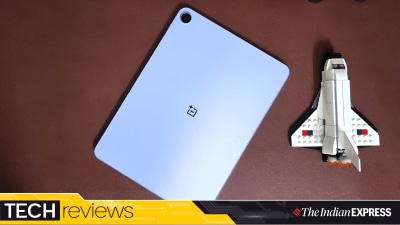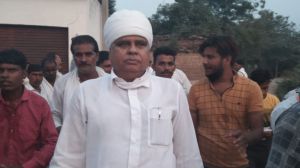The Reader
Today is Milad-un-Nabi, the birthday of the Prophet of Islam PBUH, and it seems terribly important to think about the man whose followers ...

Today is Milad-un-Nabi, the birthday of the Prophet of Islam PBUH, and it seems terribly important to think about the man whose followers changed so much of India8217;s history. If one attempts to concentrate on the gentle aspects of Islam, one is trashed as a 8220;pseudo-secularist8221;. Meanwhile, even a Muslim is not allowed to articulate questions about the way Islam is practiced in this country, for fear of violent objections from the orthodoxy. But how is it helpful to stay stuck at a perceptual stalemate? Surely it is better to set up dialogues: Meaningful ones, not show-off sessions between small men with big egos. Because without speaking to each other, how can we ever work it out? Is not a holy birthday like this a blessed opportunity to at least begin to think about peaceful co-existence in practical terms?
Perhaps we could begin by reminding ourselves of some of the things the Prophet of Islam reportedly said. For instance, whenever the Prophet entered a place of worship he would say, 8220;God, pardon my sins and open to me the gates of Thy compassion.8221; On leaving, he would say the same. So clearly he had humility. Another time he said, 8220;When I see a person who has been given more than me in money and beauty, let me look to those who have been given less; let me think of those who are worse off than me, that I may not hold God8217;s benefits in contempt.8221; Is not counting one8217;s blessings a universally encouraged precept?
On the concept of jihad, the Prophet said: 8220;The most excellent Holy War is that for the conquest of self. Therefore let God fill my angry heart with safety and faith, for no person has drunk a better draught than one who has swallowed anger for God8217;s dear sake.8221;
On the principle of co-existence, without which we cannot survive, he said: 8220;Do we love our Creator? Let us love our fellow-beings first. For God is gentle and loves gentleness; For God is mild and is fond of mildness, and He gives to the mild what he does not to the harsh.8221;
If we cast our mind back to that day in 570 CE, when a baby was born to Amina whose name means 8216;peace8217;, we remember that he grew up into a principled young man called 8216;The Trustworthy8217;. He did not dream of empires in his name. He was terrified while meditating in a cave in Mount Hira when an 8216;a-shareeri8217; voice first said: 8220;Iqra! Read!8221; Perhaps today we as modern Indians, Muslim and ghair-Muslim, can find each other through these simple, powerful words of the Prophet: 8220;There is a polish for everything that does away with rust; and the polish for the heart is remembrance of God.8221;
- 01
- 02
- 03
- 04
- 05































